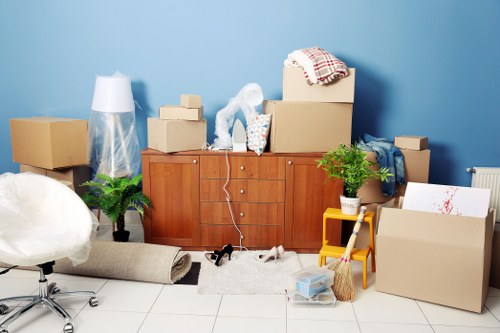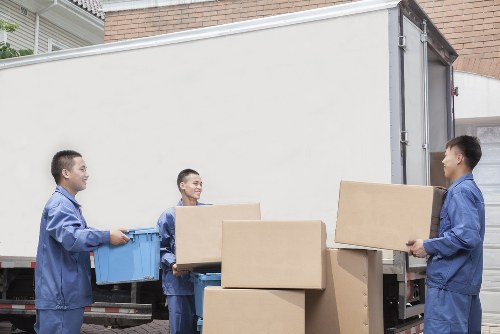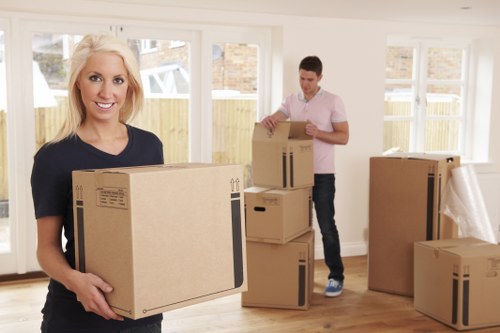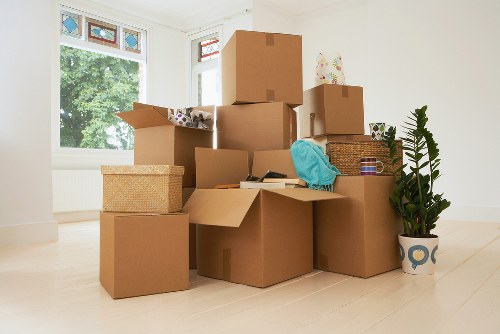Bulky Waste Collection Reading

Dealing with bulky waste can be a daunting task for many residents in Reading. Whether you're renovating your home, clearing out old furniture, or simply tidying up, knowing how to properly dispose of large items is essential. Bulky waste includes items that are too large to fit in standard waste bins, such as sofas, mattresses, appliances, and garden furniture.
Improper disposal of bulky waste not only clutters our neighborhoods but can also harm the environment. It's important to manage these items responsibly to maintain a clean and healthy community. This article provides a comprehensive guide to bulky waste collection services in Reading, ensuring that your large items are disposed of efficiently and sustainably.
Understanding the options available for bulky waste collection can save you time, effort, and money. Reading offers various services tailored to meet the needs of its residents, making the process of getting rid of bulky items straightforward and hassle-free.
Understanding Bulky Waste
What Constitutes Bulky Waste?

Bulky waste typically includes large household items that cannot be collected through regular waste collection services. Common examples include:
- Sofas and armchairs
- Mattresses and box springs
- Large furniture pieces like wardrobes and dining tables
- Appliances such as refrigerators, washing machines, and ovens
- Garden furniture and equipment
- Construction debris like old cabinets and countertops
- Electrical equipment and electronics
- Carpets and rugs
These items often require special handling due to their size, weight, and potential environmental impact. Proper disposal ensures that recyclable materials are processed correctly and that hazardous components are managed safely.
It's also important to note that certain materials may have specific disposal requirements. For instance, electronics may contain metals and other materials that need to be recycled properly to prevent pollution.
Importance of Proper Bulky Waste Collection
Environmental and Community Benefits

Proper bulky waste collection plays a crucial role in environmental conservation. By ensuring that large items are disposed of correctly, we can reduce landfill waste and promote recycling and reuse. This helps minimize the carbon footprint associated with waste management and conserves natural resources.
Additionally, maintaining a clean environment enhances the quality of life within the community. Reducing clutter and waste in public spaces prevents pollution and makes neighborhoods more attractive and safer for residents.
Community-driven bulky waste collection initiatives also foster a sense of responsibility and cooperation among residents. When everyone participates in responsible waste disposal, it leads to a more sustainable and harmonious living environment.
How to Schedule a Bulky Waste Collection in Reading
Step-by-Step Process

Scheduling a bulky waste collection in Reading is a straightforward process designed to accommodate the needs of residents. Here’s how you can arrange for the collection of your bulky items:
- Identify Your Items: Determine which items you need to dispose of. Make sure they qualify as bulky waste according to Reading's guidelines.
- Check Collection Schedules: Visit the Reading Borough Council website or contact their waste management office to find out the available collection dates and times.
- Book a Collection Slot: Depending on the service, you may need to book a specific time slot. This can typically be done online, by phone, or through a municipal app.
- Prepare Your Items: Ensure that your bulky waste is ready for collection. This may involve bundling items together, placing them in designated areas, or removing any hazardous components.
- Await Collection: On the scheduled date, the waste collection team will arrive to pick up your items. Make sure to follow any specific instructions provided by the council.
Requirements for Bulky Waste Collection
What You Need to Know

To ensure a smooth and efficient bulky waste collection process in Reading, there are certain requirements and guidelines you need to follow:
- Eligibility: Confirm that your items qualify as bulky waste. Some items may have specific disposal requirements, so it’s important to check the council’s list of accepted and non-accepted items.
- Scheduling: Book your collection in advance, adhering to the council’s booking policies and available time slots.
- Preparation: Properly prepare your items for collection. This includes disassembling if necessary, securely bundling items, and placing them in the designated collection area.
- Accessibility: Ensure that the collection team can easily access your property. Clear pathways and remove any obstacles that might hinder the collection process.
- Safety: Remove any hazardous materials from your bulky waste. This includes chemicals, batteries, and other items that require special handling.
Adhering to these requirements not only facilitates efficient waste collection but also contributes to the overall effectiveness of the waste management system in Reading.
Failure to comply with these guidelines may result in delays, additional fees, or the inability to collect certain items. Always refer to the latest information provided by the Reading Borough Council to stay updated on any changes or specific instructions.
Local Facilities and Recycling Centers
Resources for Sustainable Disposal

Reading offers several facilities and recycling centers dedicated to the proper disposal and recycling of bulky waste. These centers provide residents with the resources needed to manage their large items responsibly:
- Reading Recycling Centre: Equipped to handle a wide range of bulky waste items, including furniture, appliances, and electronics. They ensure that recyclable materials are processed efficiently.
- Hazardous Waste Collection Points: For items that require special handling, such as batteries and chemicals, these designated points ensure safe disposal without harming the environment.
- Community Recycling Events: Periodically, Reading organizes events that allow residents to drop off bulky waste for recycling and disposal. These events often include educational sessions on sustainable waste management practices.
- Eco-Friendly Disposal Options: Encourage residents to consider donating or selling items in good condition before disposal. Local charities and second-hand stores often accept bulky items, promoting reuse and reducing waste.
Utilizing these facilities not only helps in managing your bulky waste but also supports the broader environmental goals of the Reading community.
By leveraging the resources available, residents can contribute to a greener and more sustainable environment, ensuring that bulky waste is handled in an eco-friendly manner.
Cost of Bulky Waste Collection
Understanding the Fees

The cost of bulky waste collection in Reading varies depending on several factors, including the type and quantity of items, the frequency of collection, and whether additional services are required. Here’s a breakdown of potential costs involved:
- Standard Collection: Often offered free of charge by the council for certain types and amounts of bulky waste. Check the latest policies to determine eligibility.
- Additional Items: There may be fees for collecting extra items beyond the standard allocation. This ensures that services are managed efficiently and resources are allocated appropriately.
- Special Services: If you require specific handling, such as the disposal of hazardous materials or the need for a larger collection vehicle, additional costs may apply.
- Recycling Fees: Some materials may incur recycling fees to cover the costs of processing and recycling specific items.
It’s advisable to consult the Reading Borough Council’s official website or contact their waste management department directly to get accurate and up-to-date information on the costs associated with bulky waste collection.
Understanding these fees in advance helps in budgeting and ensures that there are no surprises when scheduling your collection.
Tips for Efficient Bulky Waste Disposal
Maximizing Convenience and Sustainability

Managing bulky waste efficiently requires some planning and organization. Here are some tips to help you dispose of your large items conveniently and sustainably:
- Plan Ahead: Schedule your bulky waste collection in advance to avoid last-minute stress. Consider timing your disposal around periods when you have fewer items to manage.
- Sort Your Waste: Separate recyclable items from non-recyclable ones. This makes the collection process smoother and supports environmental sustainability.
- Reduce and Reuse: Before disposing of items, consider if they can be donated, sold, or repurposed. This reduces the overall volume of waste and supports community initiatives.
- Follow Guidelines: Adhere to the council’s disposal guidelines to ensure that your items are collected without issues. Proper preparation and placement of items are crucial.
- Safety First: Ensure that items are safely prepared for collection. Remove any hazardous materials and secure large items to prevent accidents during handling.
Implementing these strategies not only makes the disposal process more efficient but also contributes to a more sustainable and environmentally-friendly approach to managing bulky waste.
By taking proactive steps, you can ensure that bulky waste collection is a positive experience for both you and the community.
Local Relevance: Surrounding Areas to Reading
Bulky Waste Collection in Nearby Communities

Reading is surrounded by several towns and villages, each with their own bulky waste collection services. Understanding the options available in these nearby areas can be beneficial, especially for residents who move between these communities. Here are some of the closest areas to Reading and their unique features related to bulky waste collection:
- Wokingham: Just a short drive from Reading, Wokingham offers comprehensive bulky waste collection services, including recycling options for furniture and appliances.
- Twyford: Known for its efficient waste management, Twyford provides scheduled bulky waste pickups and special collection events throughout the year.
- Earley: Residents can take advantage of Earley’s bulky waste disposal facilities, which include recycling centers and drop-off points for larger items.
- Woodley: Woodley offers convenient bulky waste collection services, with options for both regular and one-off pickups depending on residents' needs.
- Purley on Thames: This picturesque village provides sustainable bulky waste collection options, emphasizing recycling and reuse to minimize environmental impact.
- Sonning: Sonning’s waste management services include bulky waste collection, with a focus on community involvement and environmental responsibility.
- Tilehurst: Tilehurst residents benefit from organized bulky waste collection schedules and accessible recycling centers.
- Kidmore End: Kidmore End offers flexible bulky waste disposal services, catering to both residential and commercial needs.
- Caversham: As a bustling area near Reading, Caversham provides efficient bulky waste management solutions to handle the high demand.
- Finchampstead: Finchampstead’s bulky waste collection services are designed to be user-friendly, with easy booking options and clear guidelines.
- Chieveley: Chieveley focuses on responsible bulky waste disposal, encouraging residents to recycle and reuse whenever possible.
- Henley-on-Thames: Henley-on-Thames offers specialized bulky waste services, catering to the needs of its diverse population.
- Binfield: Binfield provides reliable bulky waste collection, ensuring that large items are disposed of properly and sustainably.
- Sonning Eye: This serene area includes bulky waste collection services that prioritize environmental protection and community well-being.
- Emmer Green: Emmer Green’s bulky waste facilities are well-equipped to handle a variety of large items, making disposal easy for residents.
Each of these areas has its own set of services and guidelines, so it's important to consult with the local council or waste management service providers to understand the specific requirements and options available.
By being informed about the bulky waste collection services in these nearby communities, residents can make more informed decisions and contribute to a cleaner, more sustainable environment.
FAQs about Bulky Waste Collection in Reading
Common Questions Answered

1. What items are considered bulky waste in Reading?
Bulky waste in Reading typically includes large household items such as sofas, mattresses, appliances, furniture, garden equipment, and construction debris. It’s best to check with the Reading Borough Council for a detailed list of accepted items.
2. How do I book a bulky waste collection in Reading?
You can book a bulky waste collection in Reading by visiting the Reading Borough Council’s official website, using their online booking system, or contacting their waste management office directly via phone.
3. Are there any costs associated with bulky waste collection?
Depending on the type and quantity of items, standard bulky waste collections may be free. However, additional or special collections may incur fees. It’s advisable to check the latest fee structure on the council’s website.
4. What should I do with hazardous materials in my bulky waste?
Hazardous materials such as chemicals, batteries, and certain electronics require special handling. You should take these items to designated hazardous waste collection points or recycling centers to ensure they are disposed of safely and responsibly.
5. Can I recycle my bulky waste items?
Yes, many bulky waste items can be recycled. Items like metal appliances, furniture, and electronics often have recyclable components. Reading’s recycling centers can process these materials to minimize environmental impact.